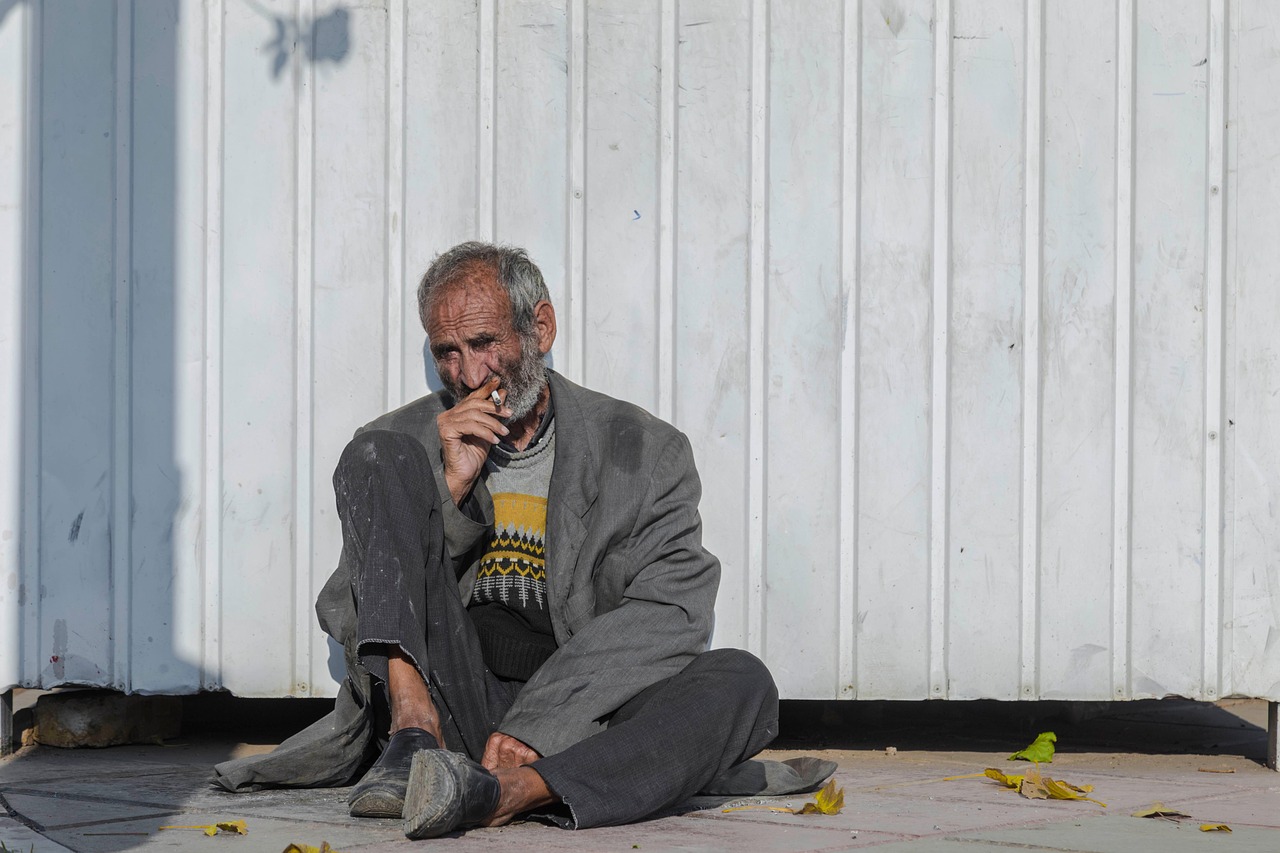Homeless People Mauritius: A Growing Concern
The number of homeless people in Mauritius has been steadily increasing, signaling a social crisis that demands urgent attention. This rise affects various communities and highlights vulnerabilities that were previously overlooked. By examining the causes behind homelessness, including economic instability, lack of affordable housing, and social inequality, it becomes evident that comprehensive intervention strategies are necessary to address this escalating issue.
Authorities, including Subron, have described the situation as worrying, emphasizing that the growing population of homeless individuals cannot be ignored. Every day, many people face harsh living conditions, limited access to basic necessities, and social exclusion. “Homeless People Mauritius” sheds light on these realities, making the public aware of the pressing need for support, assistance programs, and policy reforms.
The crisis is not limited to urban areas alone; rural regions are also witnessing rising numbers of homeless individuals. This alarming trend calls for community-based initiatives, better coordination among government agencies, and collaboration with non-profit organizations to provide shelter, food, and psychological support. “Homeless People Mauritius” is more than a statistic; it represents human lives at risk and the urgent need for collective action.
Homeless People Mauritius: The Human Impact
The human aspect of homelessness in Mauritius is often overshadowed by statistics. Each individual experiencing homelessness has a unique story, marked by struggle, resilience, and often unnoticed suffering. “Homeless People Mauritius” highlights these personal narratives, helping the public understand the emotional and social toll of living without stable shelter.
Many homeless individuals face not only physical hardships but also mental health challenges, stigma, and limited access to education and employment opportunities. The book and reports on this issue urge society to develop empathy, encourage volunteering, and implement programs that provide sustainable support. By seeing the crisis through human stories, the issue becomes more tangible and prompts actionable solutions.
Subron’s observations stress the importance of immediate intervention. Homeless people are at risk of exploitation, poor health, and social alienation. “Homeless People Mauritius” brings these realities to the forefront, encouraging government, civil society, and citizens to work together in finding effective and humane solutions for those in need.
Homeless People Mauritius: Societal Responsibility
The rise in homelessness in Mauritius underscores the societal responsibility to address root causes and provide assistance. This issue challenges communities to rethink social support systems, affordable housing policies, and safety nets. “Homeless People Mauritius” serves as a reminder that tackling homelessness requires collective awareness, public engagement, and a willingness to act compassionately.
Community programs, shelters, and local initiatives play a vital role in supporting homeless individuals. Providing temporary housing, access to healthcare, and skill-building programs can empower people to regain stability and confidence. Reports and studies under the theme “Homeless People Mauritius” demonstrate that long-term strategies are essential to prevent future generations from facing similar hardships.
Ultimately, society must view homelessness not merely as a social statistic but as a pressing human concern. “Homeless People Mauritius” calls for a unified approach, combining policy reform, public awareness, and community action to alleviate suffering and promote dignity for all.
Homeless People Mauritius: Economic and Social Factors
The increase in homelessness in Mauritius is closely linked to economic instability and social inequality. Many individuals find themselves without shelter due to unemployment, rising living costs, and the scarcity of affordable housing. “Homeless People Mauritius” examines these contributing factors, providing insights into how systemic issues exacerbate personal hardships and push vulnerable groups further into crisis.
Social factors, including family breakdowns, lack of social support, and mental health challenges, also play a critical role. The young, the elderly, and those with disabilities are particularly at risk. Reports under the theme “Homeless People Mauritius” emphasize that understanding these factors is essential for designing effective intervention strategies that address both immediate needs and long-term solutions.
By analyzing economic and social dynamics, policymakers and community leaders can better prioritize resources, establish shelters, and implement programs to reintegrate homeless individuals into society. Recognizing the root causes ensures that solutions are sustainable and meaningful rather than temporary fixes.
Homeless People Mauritius: Health and Safety Challenges
Homeless individuals face heightened risks to their physical and mental health. Exposure to harsh weather conditions, malnutrition, lack of sanitation, and limited medical access contribute to deteriorating health outcomes. “Homeless People Mauritius” brings attention to these critical issues, urging both governmental and non-governmental organizations to develop targeted health interventions.
Mental health is another pressing concern. Homeless individuals often experience anxiety, depression, and social isolation, which can perpetuate the cycle of homelessness. Awareness campaigns, counseling programs, and accessible healthcare services are vital steps highlighted in discussions about “Homeless People Mauritius.”
Ensuring safety is equally important. Vulnerable populations are often exposed to violence, exploitation, and criminal activity. Community shelters and outreach programs can provide protective environments where basic needs are met, fostering a sense of security and stability for those experiencing homelessness.
Homeless People Mauritius: Community Engagement and Support
Addressing homelessness requires active community engagement. Volunteering, donations, and advocacy play crucial roles in providing immediate relief and fostering long-term solutions. “Homeless People Mauritius” emphasizes that society as a whole bears responsibility for supporting vulnerable individuals and advocating for systemic change.
Grassroots initiatives, local NGOs, and faith-based organizations often provide innovative solutions tailored to the needs of homeless populations. Shelters, food programs, and skill-building workshops empower individuals to regain independence and reintegrate into society. These efforts illustrate the tangible impact of community involvement and highlight best practices for effective support.
Ultimately, the message of “Homeless People Mauritius” is clear: sustainable change requires collaboration among government bodies, non-profits, and citizens alike. A unified approach ensures that homeless individuals are treated with dignity, respect, and compassion while addressing the structural causes of the crisis.
Homeless People Mauritius: Government Initiatives
In response to the rising numbers of homeless individuals, the Mauritian government has begun implementing various initiatives aimed at providing temporary shelter, food, and social support. Programs under “Homeless People Mauritius” include public housing projects, outreach services, and collaboration with NGOs to ensure that those most in need receive immediate assistance. These initiatives demonstrate recognition of the urgency of the crisis and the need for coordinated action.
Subron and other officials have highlighted the importance of evaluating these programs for effectiveness. Monitoring and reporting on the outcomes allow adjustments to be made, ensuring that resources are used efficiently and effectively. “Homeless People Mauritius” emphasizes that proactive governance is critical to prevent further escalation of homelessness and to protect vulnerable populations.
While government programs are essential, the combination of policy reform, societal awareness, and community participation is necessary to achieve lasting results. Holistic approaches that address both immediate needs and systemic issues provide the best path forward in combating homelessness.
Homeless People Mauritius: Raising Public Awareness
Awareness campaigns are a key component of addressing homelessness. Educating the public about the challenges faced by homeless individuals fosters empathy and encourages civic participation. “Homeless People Mauritius” highlights campaigns that inform citizens about the realities of homelessness, promoting volunteerism, donations, and advocacy for policy changes. By raising awareness, society can better respond to the needs of the most vulnerable.
Media coverage, social platforms, and public events are tools used to draw attention to this critical issue. By sharing stories of homeless individuals, such as personal experiences and testimonies, the campaigns humanize the statistics, making the public more engaged and invested in solutions. These efforts contribute to a culture of compassion and social responsibility.
Subron stresses that public understanding and support are essential for the success of any intervention strategy. Awareness initiatives ensure that the conversation about homelessness remains active, compelling both policymakers and citizens to take meaningful action.
Homeless People Mauritius: The Path Forward
Looking ahead, sustainable solutions for homelessness in Mauritius require collaboration among government authorities, community organizations, and citizens. “Homeless People Mauritius” emphasizes the importance of integrating housing, healthcare, education, and employment programs into a cohesive strategy that addresses both the causes and consequences of homelessness.
Community-driven projects, policy reforms, and social support systems must work hand in hand to provide long-term solutions. Empowering homeless individuals with resources, skills, and opportunities can help them regain independence and dignity. The book and reports on this subject underline that collective responsibility is key to meaningful change.
For further information and insights on social initiatives, visit Social Mauritius. Additionally, for an external reference on homelessness strategies, see UN – Homelessness Overview.
Conclusion
“Homeless People Mauritius” sheds light on the growing crisis of homelessness, highlighting its social, economic, and human dimensions. The article emphasizes the importance of government action, community engagement, and public awareness to provide immediate relief and long-term solutions. By understanding and addressing the root causes of homelessness, society can work collectively to restore dignity, security, and hope for those affected.




